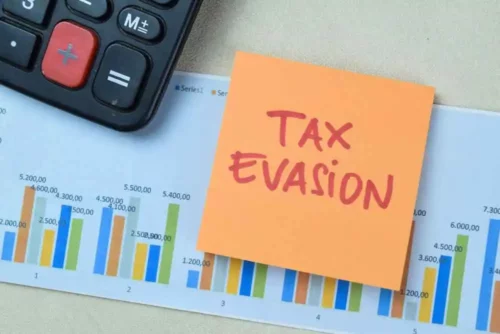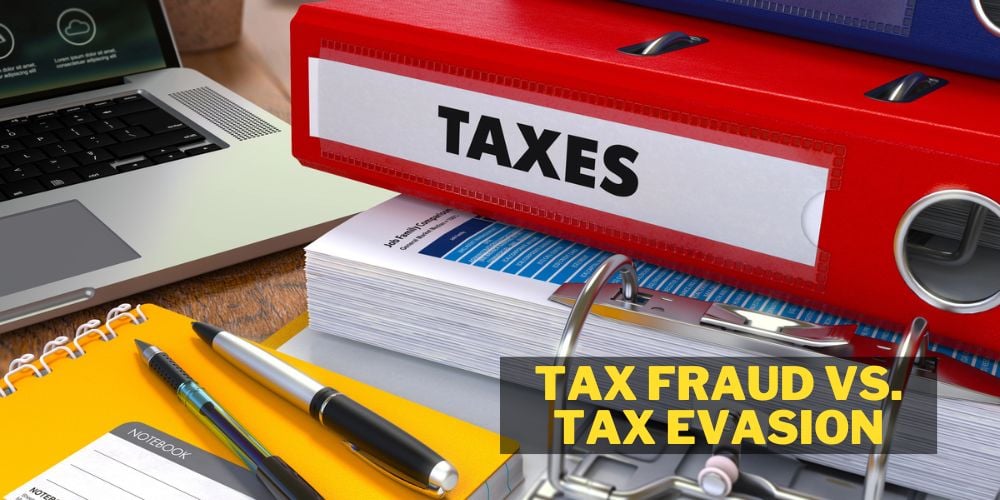Taxes are essential for funding public services and maintaining the infrastructure of a country. Yet, the complex nature of tax laws can sometimes lead to misunderstandings or temptations toward dishonesty.
Two of the serious misdeeds related to tax laws are tax fraud and tax evasion. Although they may sound similar and are often used interchangeably, they have distinct differences and carry severe penalties.
This comprehensive article looks into tax fraud vs tax evasion differences, illustrates their consequences, and provides practical advice on avoiding such pitfalls.
Understanding Tax Fraud
Tax fraud involves deliberate falsification of records to reduce the amount of taxes owed. It is an act of deception intended to benefit the taxpayer at the expense of the government.
For example, individuals commit tax fraud when they knowingly claim deductions for expenses that never occurred or when businesses underreport their income to pay less in taxes.

The consequences of committing tax fraud are severe, reflecting the seriousness with which the government views these offenses.
Fines can double or triple the amount of tax owed, and in extreme cases, criminal charges leading to imprisonment might be pursued. For instance, someone who files a false tax return could face up to three years in prison, according to U.S. tax law.
Understanding Tax Evasion
Tax evasion also involves illegally avoiding taxes, but it typically includes failing to report income altogether.
For example, if an individual receives cash for work and does not declare it, they are evading taxes. Business owners might also evade taxes by not reporting the full revenue from their business.

Like tax fraud, the penalties for tax evasion are hefty and can also include prison time. The IRS views evasion as theft from the government and, by extension, from fellow taxpayers. Hence, it uses audits and other measures to detect and penalize this offense rigorously.
The Legal Implications of Tax Fraud
Legal ramifications of tax fraud are significant. The IRS imposes penalties depending on the nature and severity of the fraud.
Civil penalties might involve paying up to 75% of the tax underpayment. Criminal penalties for tax fraud can be even more severe, leading to hefty fines and imprisonment.
When the IRS suspects a person or a business of fraud, it initiates a thorough investigation, which can be stressful and financially draining.
Legal proceedings might follow if there’s sufficient evidence of wrongdoing, potentially leading to criminal charges.
Tax Fraud vs. Tax Evasion : IRS’s Role in Detecting and Investigating Tax Fraud and Evasion
The IRS has sophisticated detection systems to identify discrepancies in tax returns. Using algorithms and auditing techniques, it flags returns that appear to contain discrepancies or outright fraud.
The IRS also encourages taxpayers to report any observed instances of tax evasion or fraud, offering financial awards for information that leads to successful prosecution.
Tips to Avoid Accidental Tax Fraud or Evasion
To avoid legal troubles with the IRS, taxpayers should adopt careful record-keeping practices. All income, regardless of its source, should be reported accurately.
Understanding what deductions and credits you are eligible for is also crucial in avoiding misstatements on your tax return. When in doubt, consulting a tax professional is always a wise option.
- Keep excellent records: Save all receipts, invoices, and bank statements that can prove your income and expenses.
- Report all income: Ensure you declare all forms of income, even if they are small or irregular.
- Know your deductions: Understand which expenses are deductible and ensure you have documentation to prove them.
- Stay honest and thorough: Always provide complete and accurate information when filing taxes.
Historical Examples of Tax Fraud and Evasion
Historical incidents of tax fraud and evasion offer intriguing insights into how individuals and corporations have attempted to skirt their fiscal responsibilities.
One prominent example is the case of Al Capone, the infamous mobster who was ultimately imprisoned not for his numerous crimes related to organized crime but for tax evasion in 1931.
Another notable case involves the Panama Papers leak in 2016, which exposed a global network of wealthy individuals and political leaders who used offshore bank accounts and shell companies to hide assets and evade taxes.
These cases underscore the lengths to which some will go to evade tax laws and the ongoing battle authorities face in enforcing tax compliance.
Frequently Asked Questions
What is the difference between tax avoidance and tax evasion?
Tax avoidance is legal; tax evasion is illegal.
Can the IRS charge someone with tax evasion after an audit?
Yes, if evidence of evasion is found.
How can I correct a previously filed tax return if I think I accidentally committed tax fraud?
File an amended return immediately.
Are there any amnesty programs for those who have evaded taxes?
Yes, through the IRS Voluntary Disclosure Program.
How does the IRS detect tax fraud and evasion?
Through audits and data analysis techniques.
Conclusion
In an ever-evolving financial environment, understanding the nuances of tax law becomes paramount.
Distinguishing between tax fraud and tax evasion and recognizing their implications are crucial for adhering to legal standards and avoiding potentially severe penalties.
By maintaining transparent financial practices and consulting professionals when in doubt, taxpayers can ensure compliance and safeguard against the pitfalls of tax fraud and tax evasion.


 Tags:
Tags:










